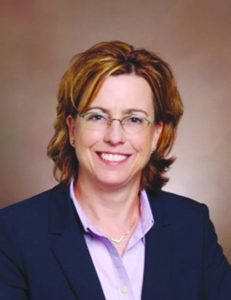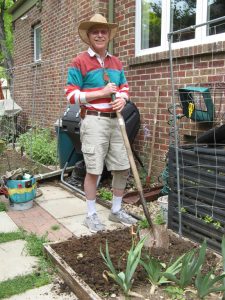50 Years Of Earth Days
Still So Much To Do

The year 1970 was notable in many ways. The Concorde made its first supersonic flight. The Beatles broke up. A cyclone in Bangladesh killed 500,000 people. And, we celebrated our first Earth Day.
The annual April 22 event was started by Gaylord Nelson, a Democratic senator from Wisconsin, in collaboration with Pete McCloskey, a Republican from California. Nelson had witnessed a massive oil spill in Santa Barbara. He had also experienced the power of the anti-war movement. He utilized heightened public awareness from the anti-war effort to bring about environmental protections.
McCloskey, who was instrumental in drafting the Endangered Species Act, was one of the first members of Congress to consider the impeachment of President Richard Nixon. Nelson later earned the Presidential Medal of Freedom from President Bill Clinton.
The first Earth Day led to the formation of the Environmental Protection Agency and the passage of the Clean Air, Clean Water and The Endangered Species Act.
Without a doubt the two men, who sat on opposite sides of the political aisle, understood the critical importance of collaboration and protecting our planet. I wonder if they then knew what was fully at stake. Could they have known that in 2020 humans would be continuing to drive thousands of species to the edge of extinction, leaving the youth of the world facing a much different world? What would they think of the current president’s efforts to dismantle the very safeguards they helped establish?
A year ago, United Nations General Assembly President Maria Fernanda Espinosa Garces noted, “We are the last generation that can prevent irreparable damage to our planet,” adding that 2019 must be a year of climate action at all levels. Later last year, Andrew Wheeler, a coal lobbyist, was appointed to lead the Environmental Protection Agency, and immediately got to work trying to dismantle federal mercury and air toxins protections, weaken methane rules, roll back the clean car rules and discredit science.
Despite the alarming setbacks, there are hard working people across the country who are dedicating their time and resources to solve our climate emergency. Some of them live right here in our neighborhood.
In honor of Earth Day, indeed for the entire month of April, I would like to highlight some of their work and projects.
When school classes are back up and running, please notice that McAuliffe International Middle School now has No Idling signs. That is thanks to the hard work of students Harper Hargrove and Madeleine Senger, who saw a problem and got right to work.
As highlighted in the December issue of the newspaper, Senger explained their motivation: They simply noticed how many cars were idling outside the school, and wanted it to stop. After all, idling wastes fuel, is bad for the environment, and for students’ health.
“Since we are on the Climate Activism Team, we decided to act on what we saw,” Senger noted. “Harper talked to the principal about getting signs up around the school. The principal agreed and we got to put up signs around the school saying that idling is not allowed.”
Here are a few other nuggets of hope:
• Park Hill Elementary is now composting, which helps reduce methane emissions and returns needed nutrients back into the soil.
• Two themed street mural projects have been installed at Stedman and Park Hill elementary schools, highlighting climate change. Two more murals will be installed this spring, at Hallett and Smith elementary schools.
• Greater Park Hill Community, Inc. continues to work to prevent good produce from going to waste during farmers’ market season. People drop off their unneeded and excess produce (which could have gone to the landfill) and the yummy bounty is given away via a free farm stand. Food waste from our own food pantry is donated to an animal shelter, where it is used to help feed hungry pets-in-waiting.
• GPHC continues to hold its designation as an Outstanding Sustainable Neighborhood, recognized by Denver city government for its commitment to workshops, projects and events that enhance the livability of our neighborhood, and to reduce our ecological footprint.
We have a talented pool of people in Park Hill who I know can make big ideas happen. As you can see in these pages each month, Mark Kuhl inspires readers with practical recycling tips. This year we will be producing an environmental lectureship series in honor of GPHC board member Matt Bradford, who died last year but whose legacy to Mother Earth lives on.
There is much to do.
This year I hope we can convince Denver Public Schools to commit to making all of our public schools run on 100 percent renewable electricity. I also hope we can inspire a real movement to increase the tree canopy in our neighborhood and along Colfax.
Will you join me during Earth Month to commit to making even bigger changes? If we have any hope of saving our planet we need to do big things and do them together.
Tracey MacDermott is chair of the board of Greater Park Hill Community, Inc. She was trained as a Climate Reality Leader in 2017, and is currently the Statewide Co-Chair of the Climate Reality Project for the 100% Committed Campaign. Contact her at chair@greaterparkhill.org.
Composting Made Easy

Get Some Wigglers To Get To Work
By Mark Kuhl
For the GPHN
Much of what goes to Denver area landfills could be diverted and turned in to a valuable resource: Compost! Here are a few ways your household or office can compost:
Denver Composts is the one-stop-shop for all compostable waste. Sign up at denvergov.org for a green bin in which you can toss all food scraps, yard debris, tree branches, and more. The annual fee is $117 and the bin is emptied weekly. The contents are hauled to A-1 Organics in Eaton, where it is ground up. Then the bacteria goes to work converting the organic matter into compost, which is available to us for feeding our yards and gardens. Get your compost during the spring mulch giveaway and compost sale, which is currently scheduled for Saturday, May 2. You can also buy bags of Denver’s Own EcoGroTM Compost from Ace hardware stores. Use it for your potted plants, sprinkle it on your lawn around aeration time, or work it into your flower or vegetable garden. It sure beats synthetic fertilizers.
If you want to create and keep your own compost, sign up for free backyard composting classes offered by Denver Urban Gardens (www.dug.org). Classes are held at Colorado Boulevard at 13th Avenue from April through October. A special class is also available on vermicomposting (worm composting). This is a great way to convert your food scraps into a rich form of compost and it’s fun for kids. Maintaining a worm compost bin is easy to do and it doesn’t smell. If you can’t find a neighbor to donate a fist full of red wigglers then check out Denver Urban Gardens for advice on where to get some worms.
Mark Kuhl is an environmental advocate who lives in Park Hill with his wife Nina and their two teenage daughters. Check out Kuhl’s handy tips and news about recycling household items every month in these pages. A directory of his past columns for recycling everything from paint to Styrofoam to shoes is at greaterparkhill.org/sustainability/recycling-directory/.
